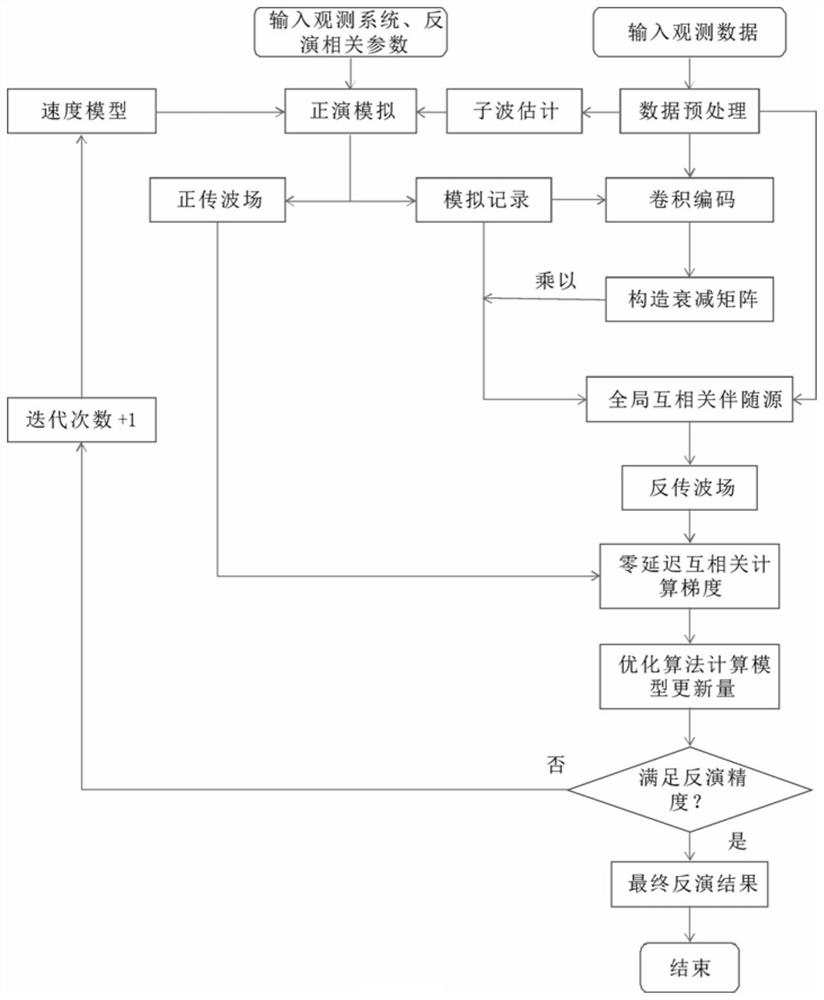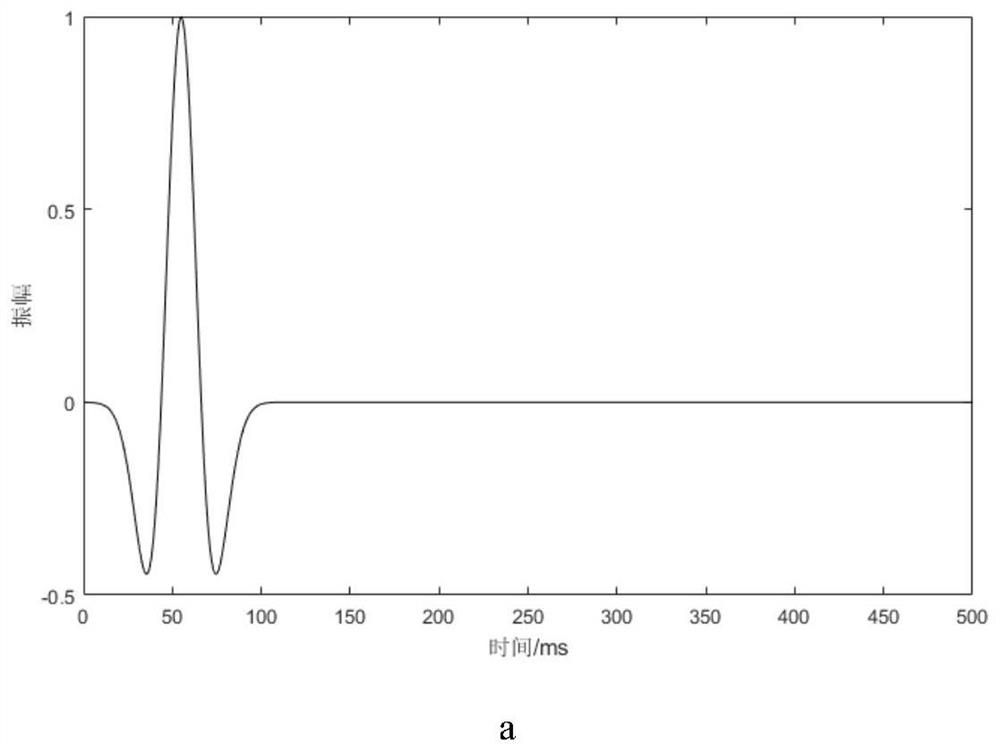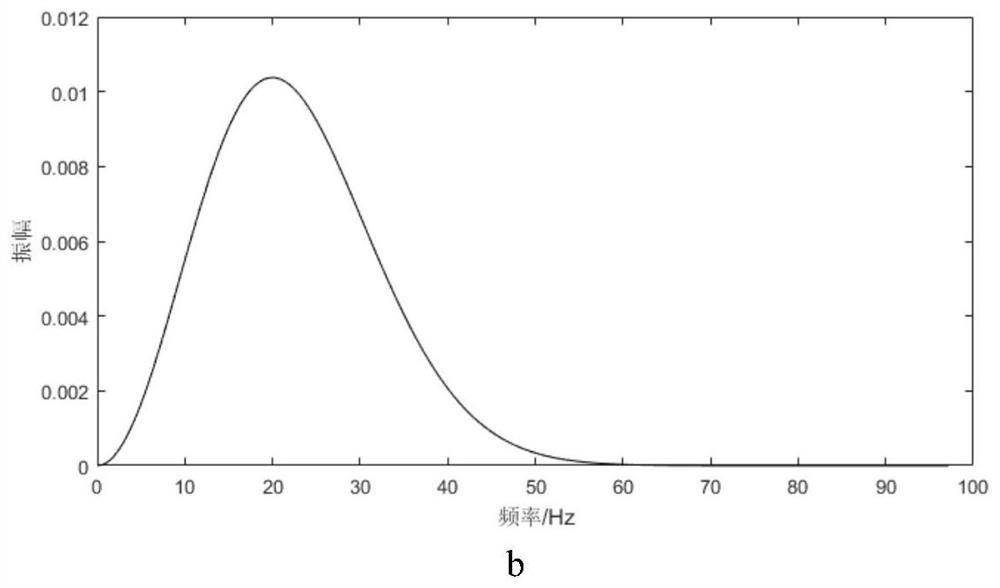Convolutional coding-based time domain full waveform inversion method
A full waveform inversion and convolutional coding technology, applied in the field of seismic exploration imaging, can solve problems such as poor calculation stability, achieve strong noise resistance, enhance inversion accuracy, and increase calculation time
- Summary
- Abstract
- Description
- Claims
- Application Information
AI Technical Summary
Problems solved by technology
Method used
Image
Examples
Embodiment 1
[0127] According to the exploration requirements, Parallel Computing Toolbox and MATLAB Distributed Computing Server (R2016b) were installed under the Windows 10 Professional Edition system to build the MATLAB parallel platform.
[0128] Full waveform inversion test with missing low frequency information using Marmousi. real model ( Figure 4 ) and a linearly increasing initial model ( Figure 5 ).
[0129] Table 1. Full waveform inversion test parameters with missing low frequency information
[0130] grid size grid distance Line length vertical depth Bandwidth 69×192 12.5m 2400m 862.5m full band
[0131] The grid size of the model is 69×192, the grid spacing is 12.5, the lateral distance is 2400m, and the vertical depth is 862.5m. The seismic wave velocity ranges from 1500m / s to 4000m / s in the model. The grid point is a geophone, and the interval between the geophones is 12.5m, and a total of 12 seismic sources are excited. The seismic sou...
PUM
 Login to View More
Login to View More Abstract
Description
Claims
Application Information
 Login to View More
Login to View More - R&D
- Intellectual Property
- Life Sciences
- Materials
- Tech Scout
- Unparalleled Data Quality
- Higher Quality Content
- 60% Fewer Hallucinations
Browse by: Latest US Patents, China's latest patents, Technical Efficacy Thesaurus, Application Domain, Technology Topic, Popular Technical Reports.
© 2025 PatSnap. All rights reserved.Legal|Privacy policy|Modern Slavery Act Transparency Statement|Sitemap|About US| Contact US: help@patsnap.com



